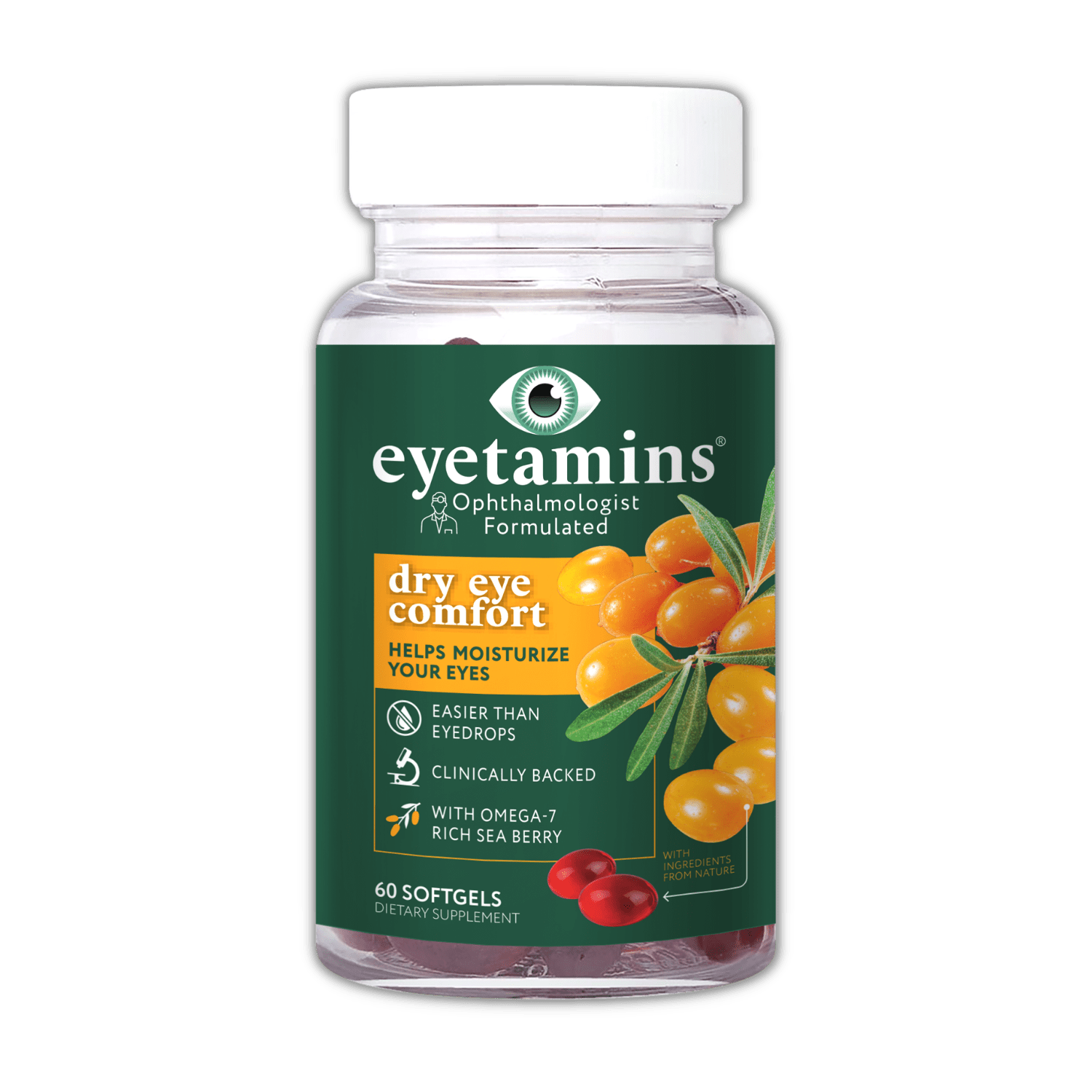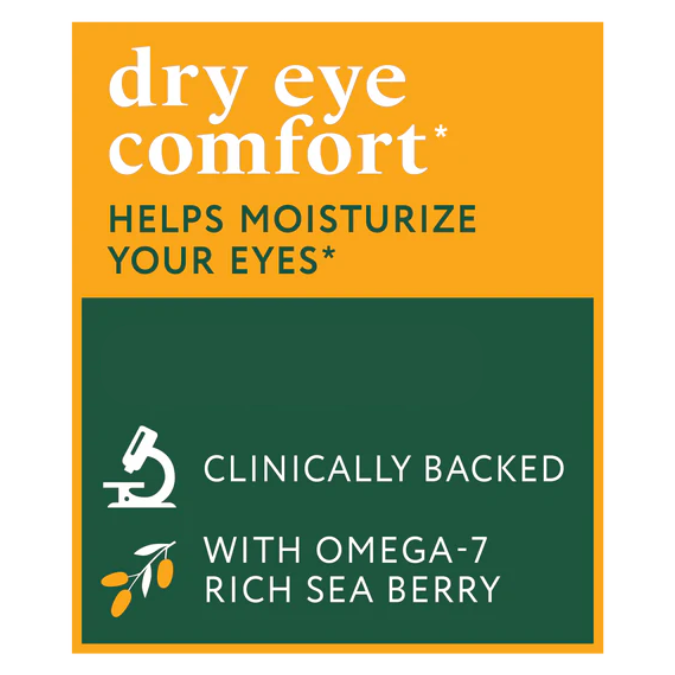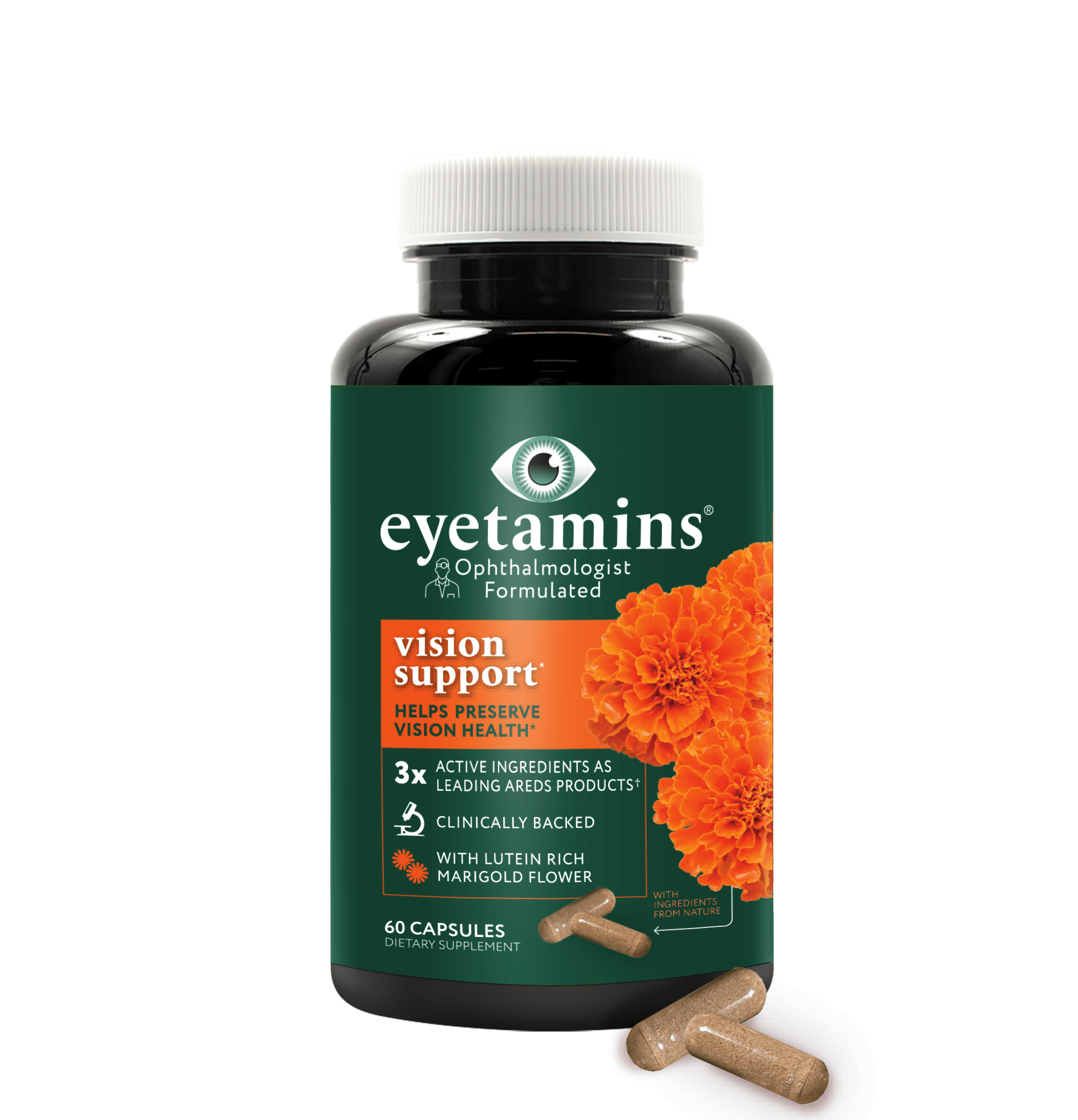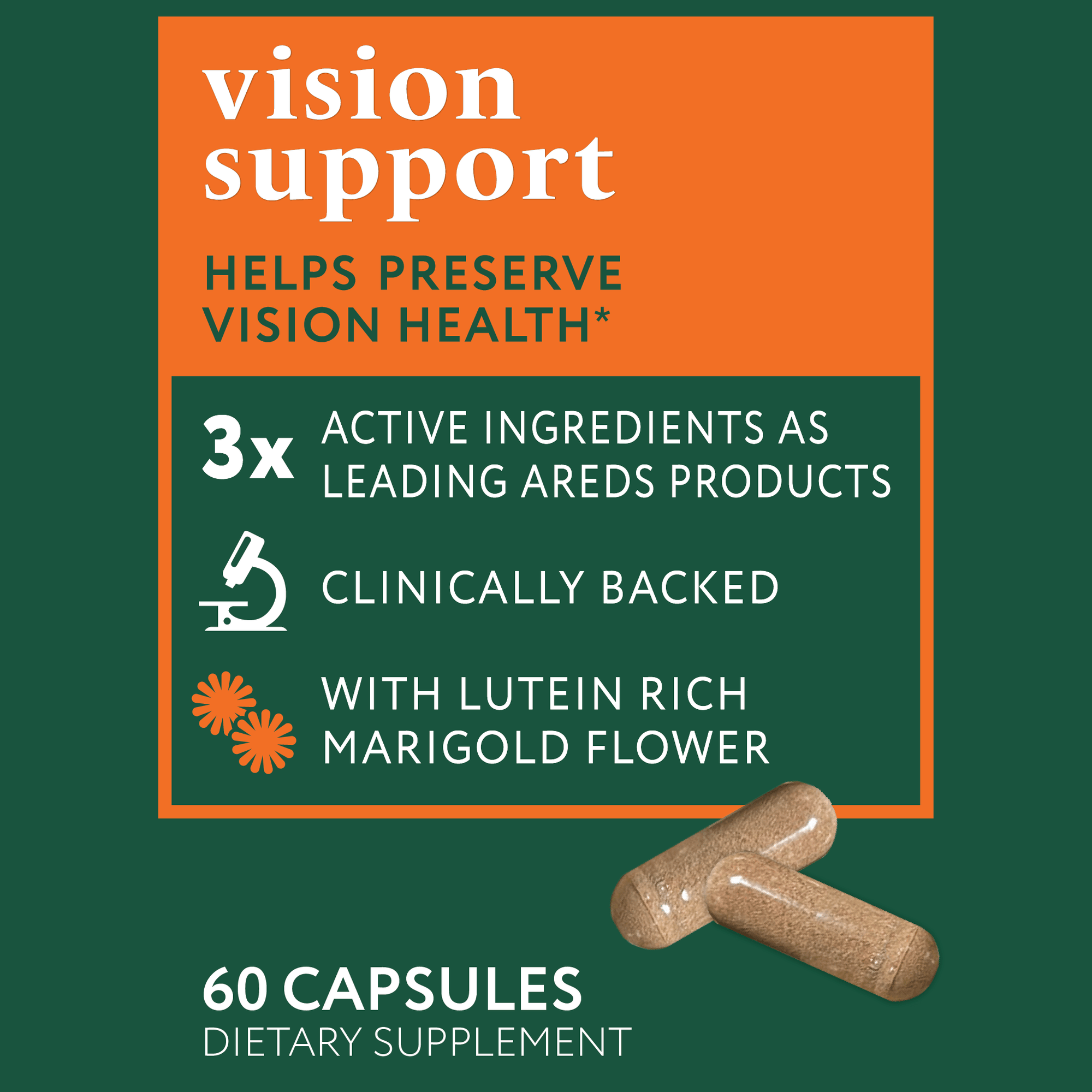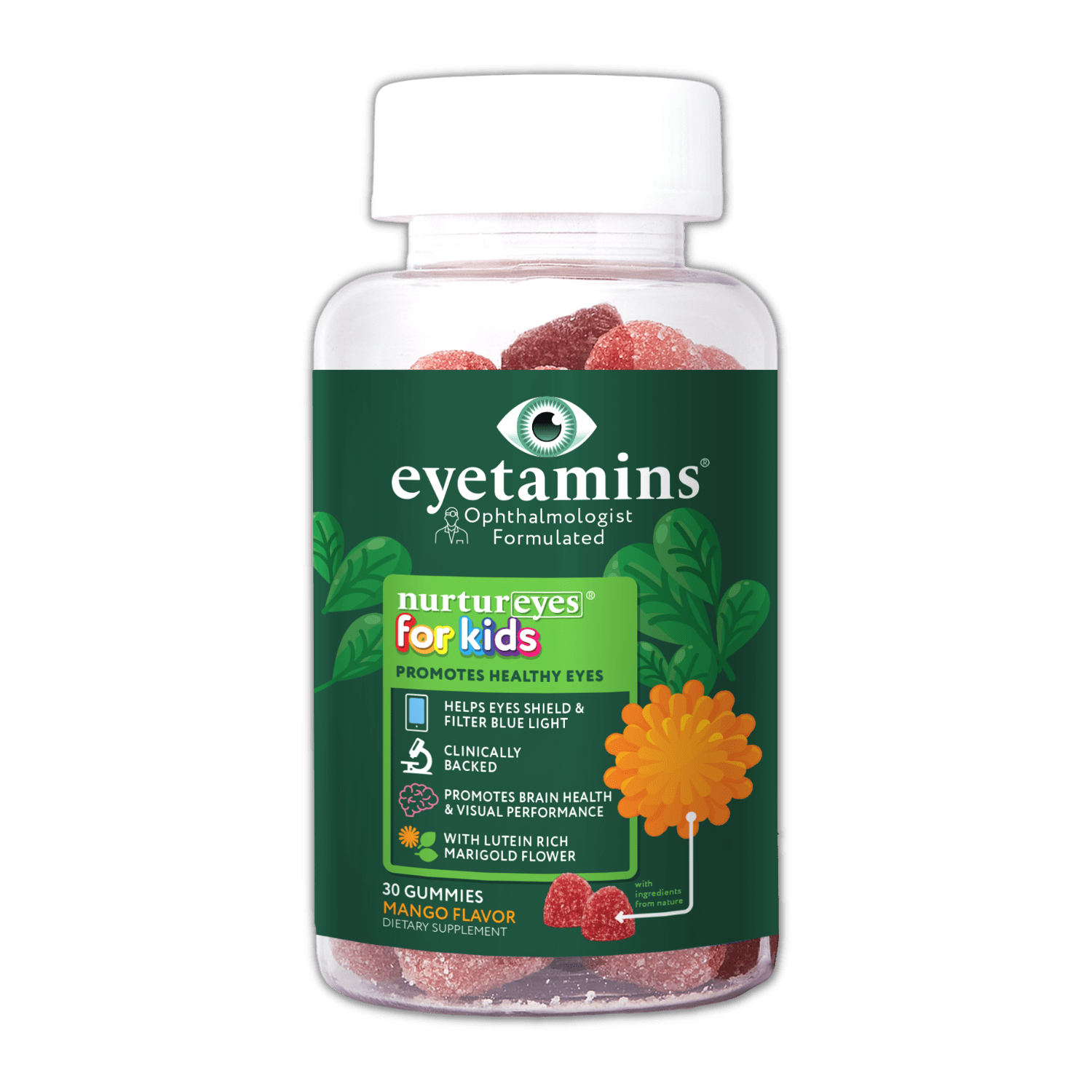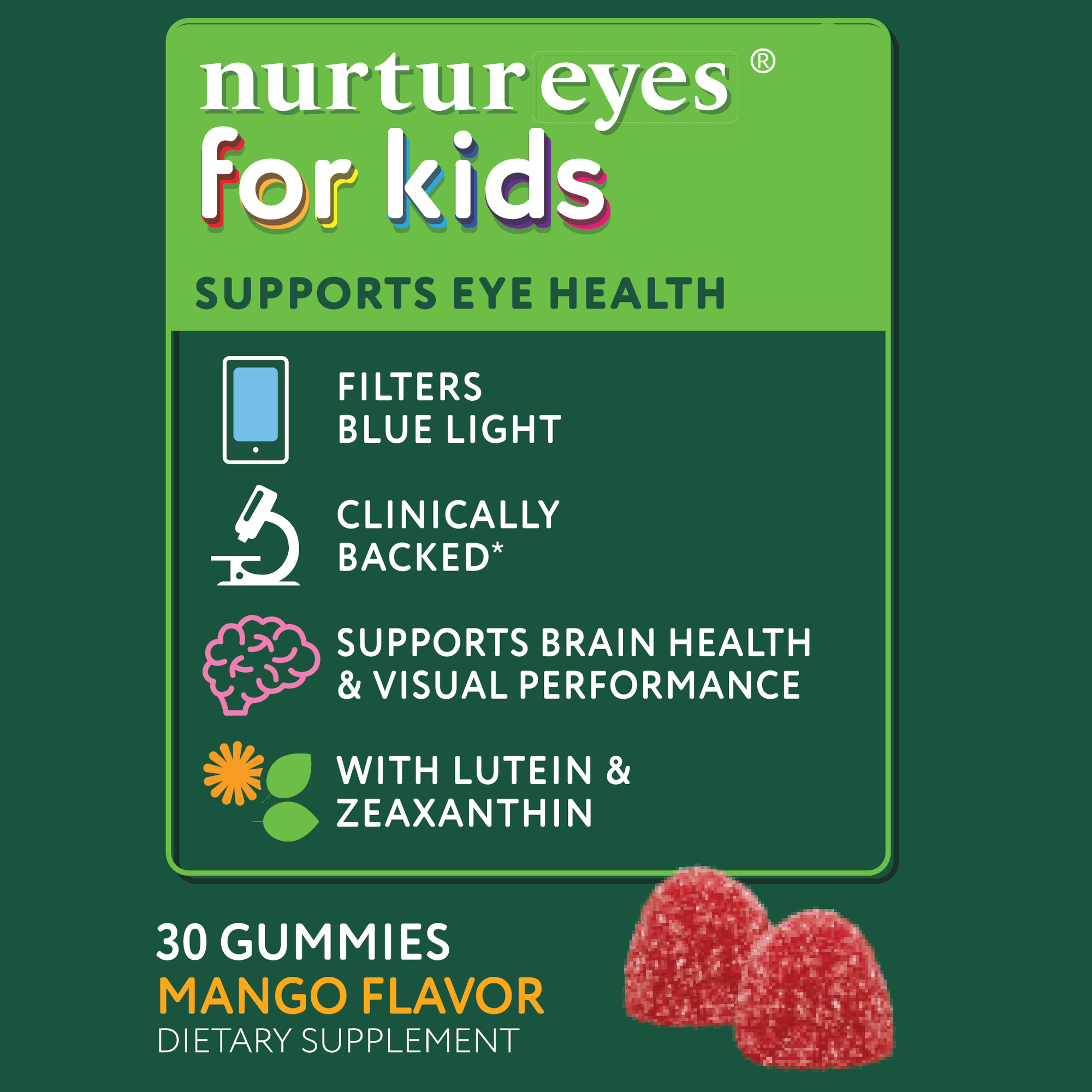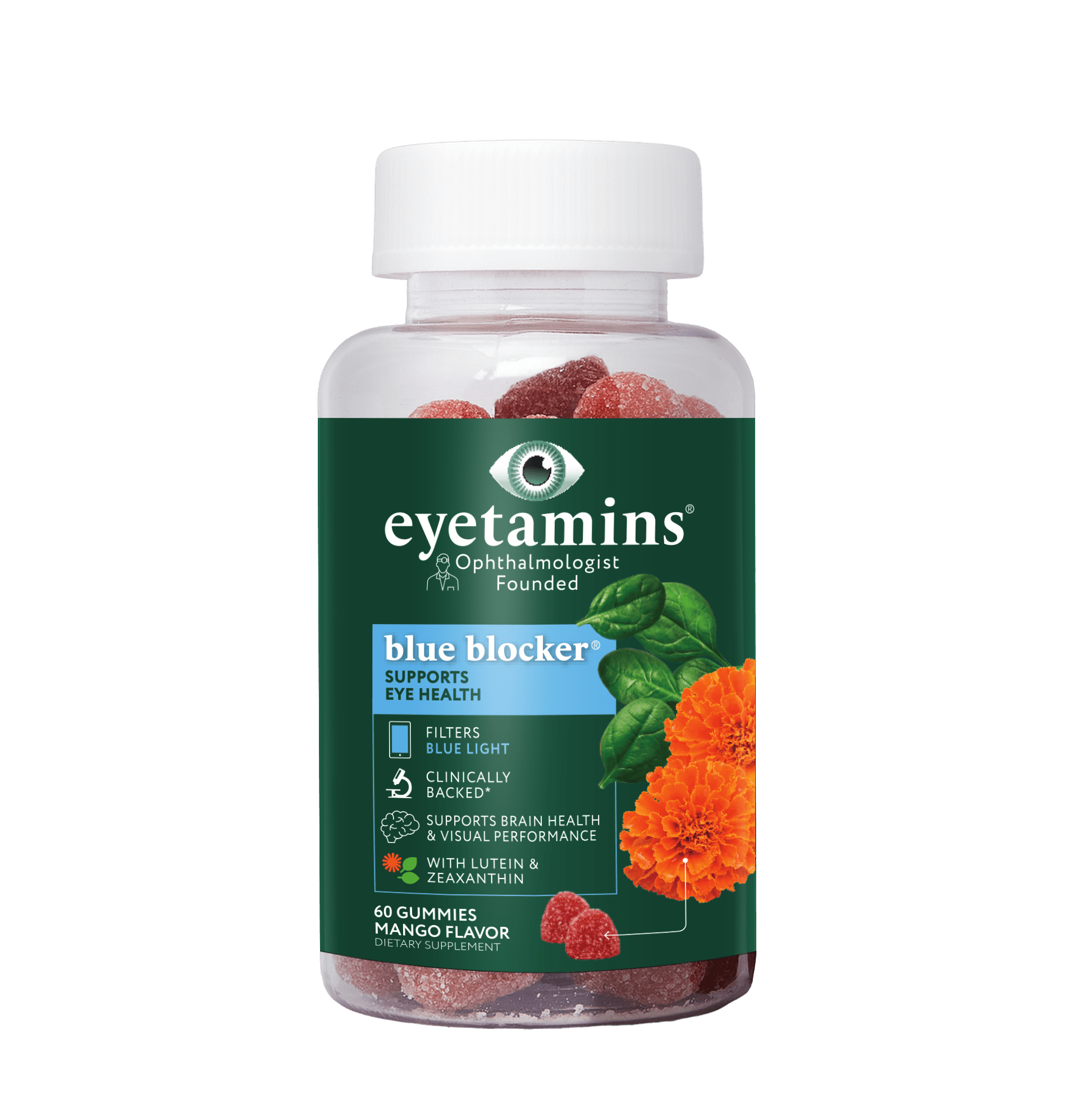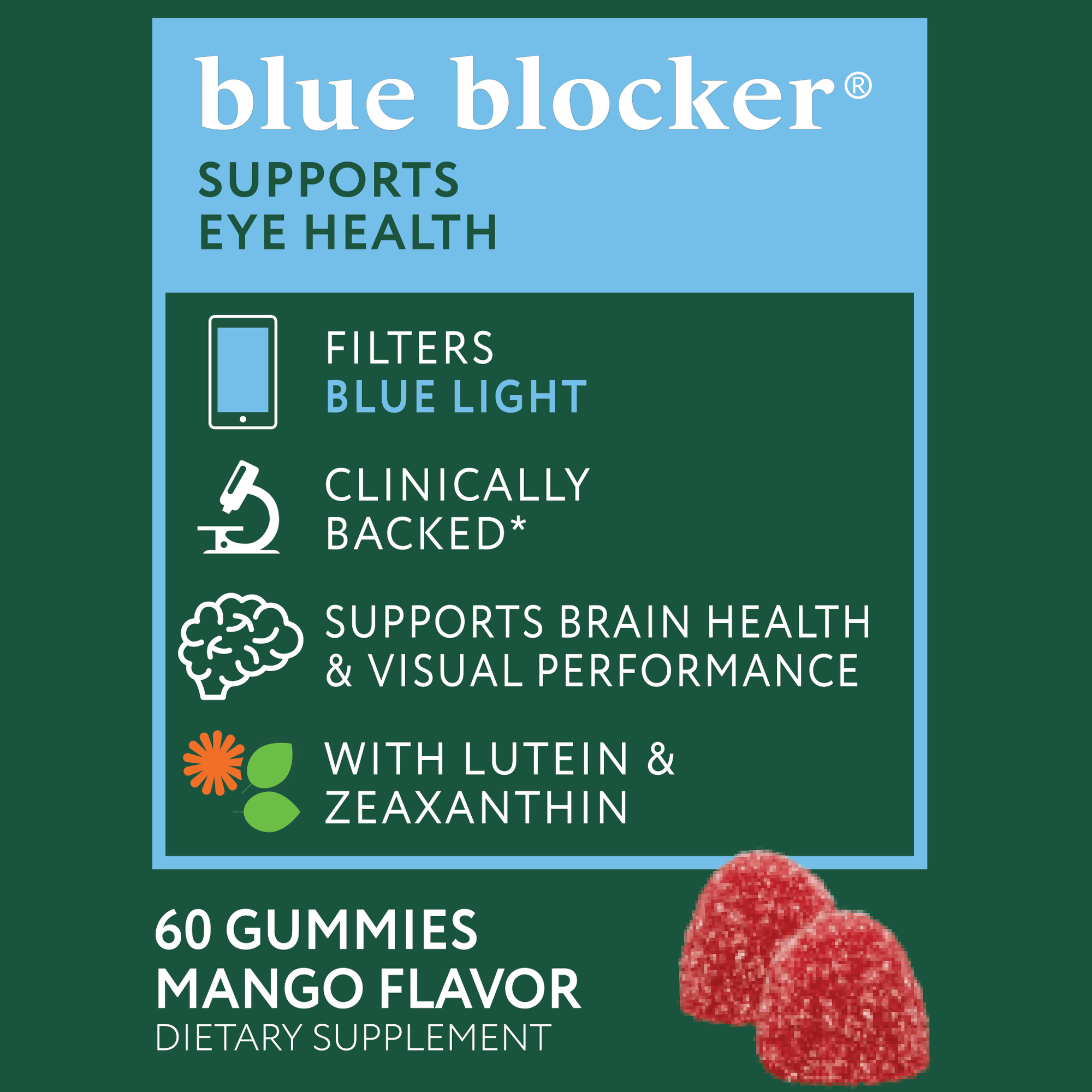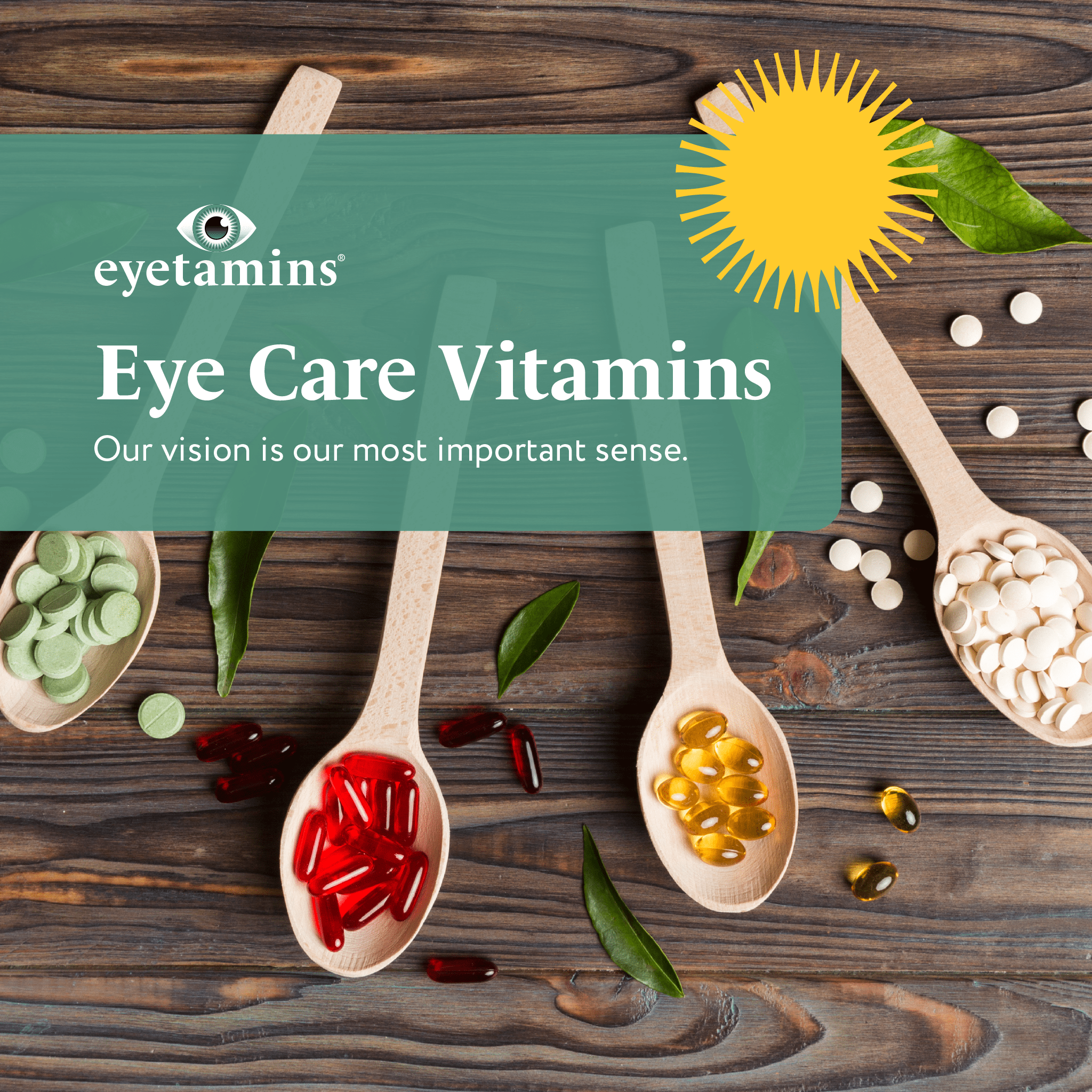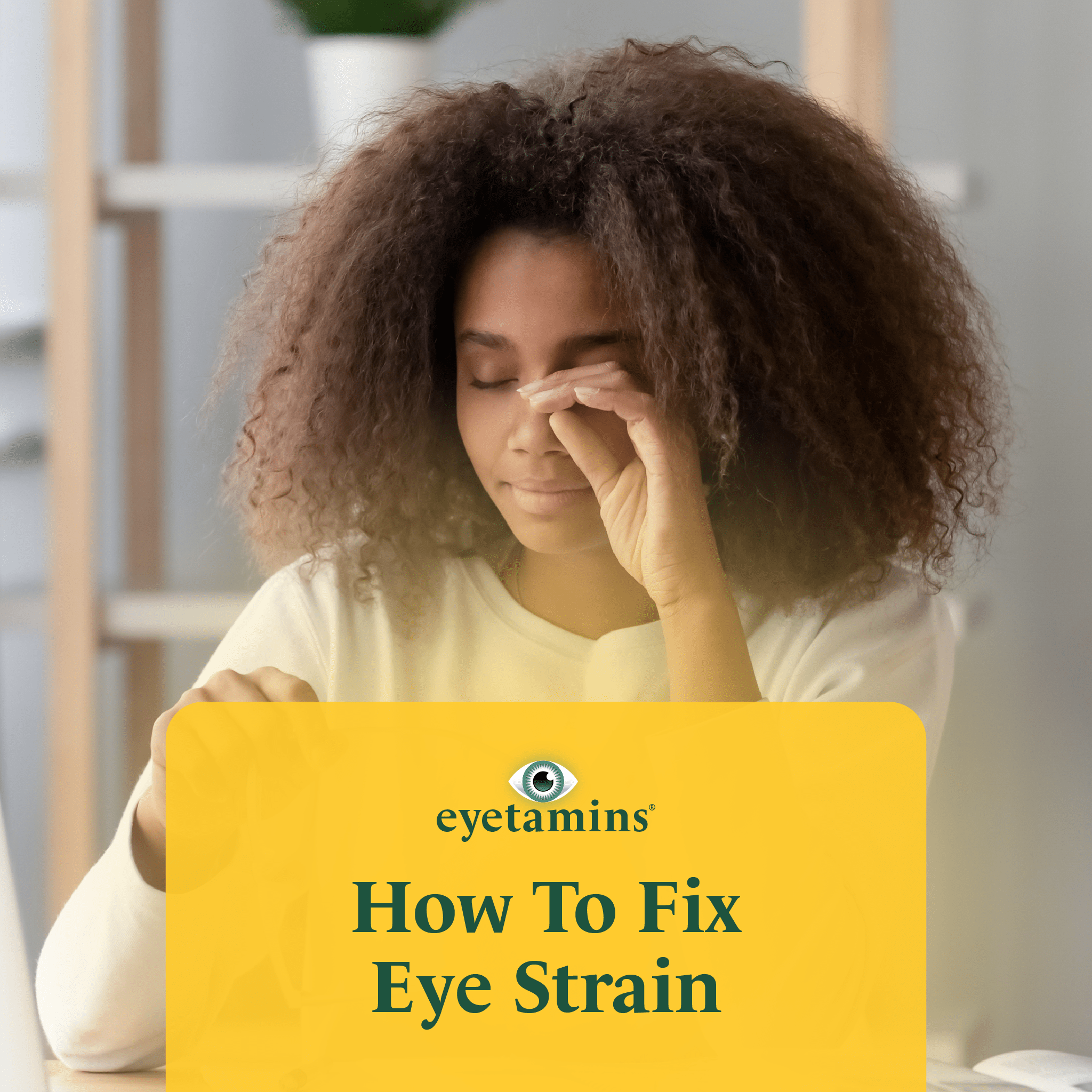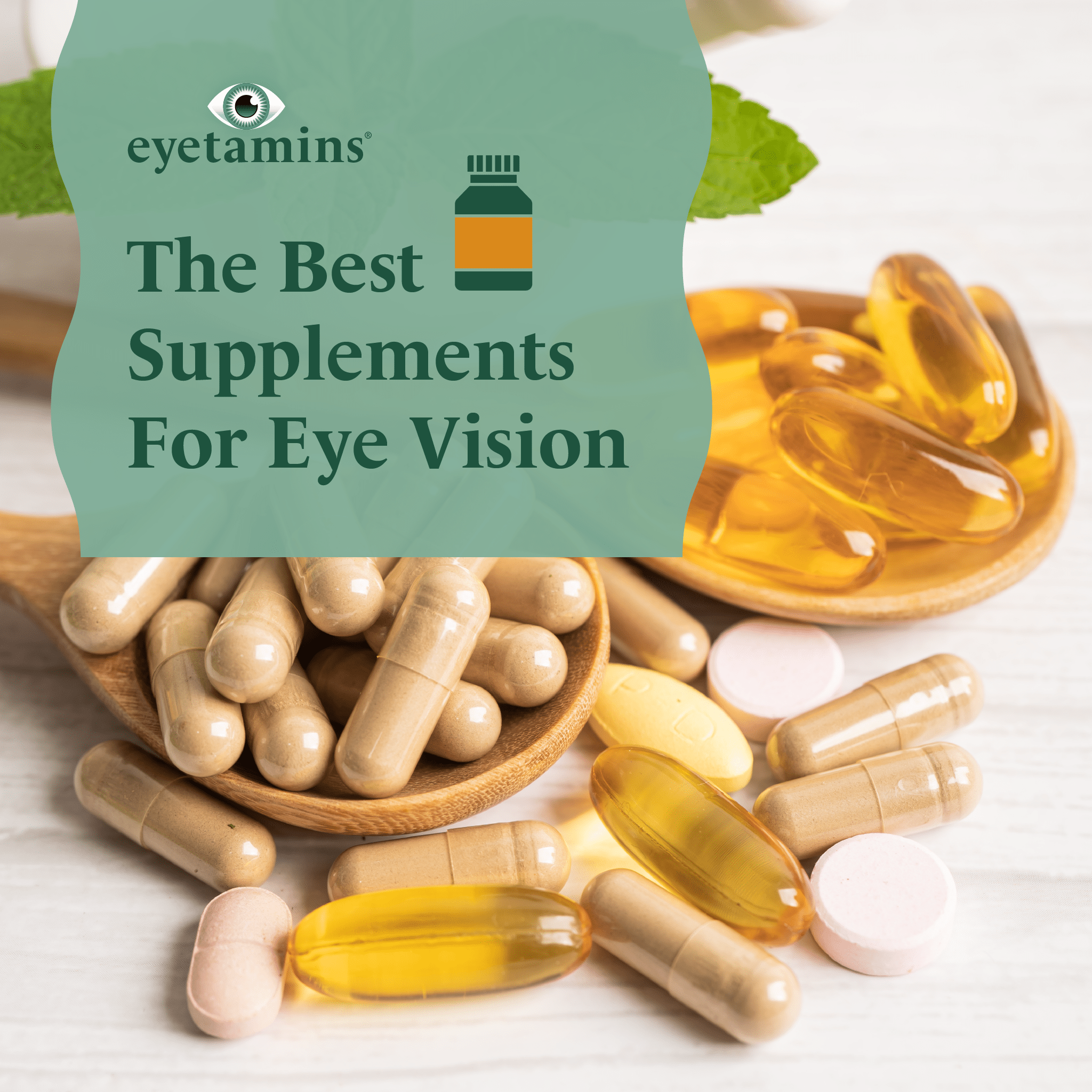· By Dr. Kaushal M. Kulkarni, M.D.
6 Simple Ways to Improve Eye Health
One of the most common questions an optometrist receives is, “How can I restore my 20/20 vision?” As of right now, the only answers to that question are contact lenses, glasses, or refractive surgery such as LASIK.
If you yourself are asking this question, but you aren’t satisfied with the available answers, then it is time to be proactive about your eye care. In this article, we break down six simple ways you can improve your eye health right now, plus answer four frequently asked questions about what it means to take care of your eyes.

6 Simple Ways to Improve Eye Health
If improving your eye health and preventing serious eye problems are the goals, then we have six easy-to-implement ways to prioritize your eyes.
1. Eat a Balanced Diet
Keeping a healthy diet is vital to your overall health, and that includes your eye health. Make sure you are eating plenty of foods with vitamin A, vitamin C, vitamin E, and zinc. These are all important antioxidants that can help prevent debilitating eye problems like cataracts and age-related macular degeneration (AMD). Some of the best foods for eye health include leafy vegetables, sweet potatoes, citrus fruits, strawberries, carrots, and red peppers. Foods like flaxseed and fish are also recommended for the Omega-3 fatty acids.
2. Schedule Regular Eye Exams
For too many people, the time to schedule an eye exam is when there is a problem. But to give yourself the best chance at preventing something serious, experts recommend making an appointment to see your eye doctor for a checkup at least once per year.
3. Quit Smoking
You probably already know that smoking is bad for your heart and lungs (and skin and hair and throat…), but smoking can also cause serious and irreversible damage to your eyes. When you smoke cigarettes, the tiny blood vessels in your eyes become inflamed, making it harder for life-giving blood and oxygen to reach your eyes. This increases your chances of developing cataracts, age-related macular degeneration, and other serious eye problems.
4. Get Enough Sleep
Your body – and especially your eyes – needs six to eight hours of solid, restful sleep each night. As your sleep, your eyes restore themselves. Small scratches or abrasions heal, and tears lubricate your eyeballs and flush out any dust and dirt. When you go too long without sleeping, or when you don’t get enough sleep, your eyes aren’t able to restore themselves, and as a result they can appear bloodshot and feel dry and itchy.
5. Take a Daily Eye Vitamin
Vitamin supplements make it easy to ensure your body is receiving all of the nutrients it needs to function properly. When it comes to your eye health, an ophthalmologist-formulated daily vitamin will contain lutein and zeaxanthin; vitamins A, C, and E; zinc; and more – all of the nutrients that benefit your eyes and vision.

6. Wear Sunglasses and Other Protective Eyewear
The sun’s powerful UV rays can easily damage the retina and other parts of the eye over time. When you are driving or out in the sun, wearing sunglasses can provide your eyes the protection they need, plus make it easier to see. Similarly, blue light-blocking glasses can keep blue light from reaching your eyes when you are watching television, on your cell phone, or working on a computer.
People Also Ask
1. Can you improve eye vision naturally?
Currently, there is no way to permanently reverse eye issues like astigmatism, presbyopia, hyperopia (farsightedness), or myopia (nearsightedness). However, these issues can be treated with glasses, contact lenses, or refractive surgery.
2. How can I make my vision better again?
The best thing you can do for your eyes is to care for them proactively. Unfortunately, once a refractive error such as astigmatism, myopia, or hyperopia occurs, that damage can be treated, but not reversed.
3. How can I prevent my eyesight from getting worse?
If you have noticed your vision has begun to blur, then taking the best possible care of your eyes should become a priority. Begin seeing your eye doctor for an eye exam at least once per year, and get fitted for eyeglasses or contact lenses. If you smoke, stop immediately. Eat a healthy, balanced diet, and introduce an eye vitamin into your daily routine. Finally, get a read on your family history. Many degenerative eye issues are genetic, and knowing about your personal risks can help your ophthalmologist when making decisions.
4. Can eyesight be improved by eye exercises?
While eye exercises aren’t likely to sharpen your vision, they may make them less likely to strain.
Conclusion
Currently, only glasses, contact lenses and refractive surgery can improve your vision. Wearing sunglasses, getting enough sleep, and scheduling regular eye exams are all easy ways to keep up with your eye health.
You can also incorporate into your daily routine a vitamin supplement packed with all of the most important nutrients your eyes use to function at their best. Whatever you do, any step taken to care for your eyes is worth it and can go a long way in preventing serious eye conditions that include vision loss.


